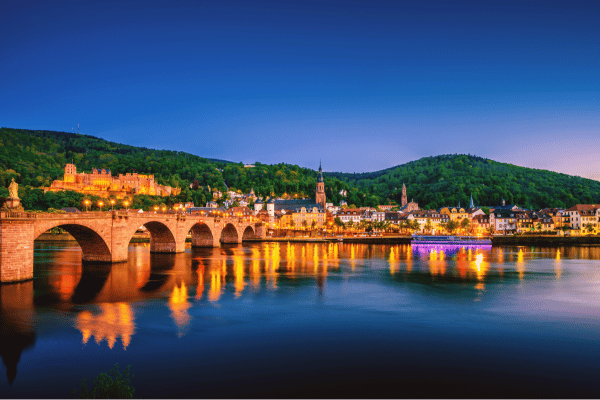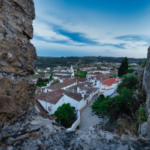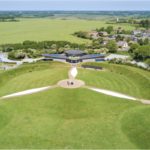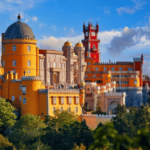When we think about traveling to Germany, the mind often wanders to its enchanting castles, robust beer culture, and the autobahn. But, nestled within this rich tapestry are Germany’s top university cities, brimming with academic prestige and vibrant student life. These cities offer a unique blend of cultural experiences, historic sites, and youthful energy, making them must-visit destinations for any traveler.
Introduction to Germany’s Educational Havens
Germany, renowned for its high-quality education and rich cultural heritage, is home to some of the world’s most prestigious universities. These academic hubs are not just for students; they offer a treasure trove of experiences for tourists as well. From historic libraries to bustling campus life, the allure of these cities extends beyond the classroom walls. Moreover, they’re set against the backdrop of Germany’s stunning landscapes, adding to their charm.
Navigating through these cities, one can’t help but feel the vibrant energy that radiates from the bustling cafes, lively student unions, and the diverse cultural events on offer. It’s a melting pot of international students and local traditions, where ancient architecture meets innovative research. This dynamic blend enriches the tourist experience, providing a glimpse into Germany’s future without losing sight of its past.
Incorporating the top German university cities into your travel itinerary promises an enriching journey. These cities are more than just educational institutions; they are vibrant communities with a youthful spirit. Exploring them offers insights into Germany’s academic excellence and opens doors to unforgettable cultural and historic experiences. It’s a unique journey that combines learning with leisure, proving that education and entertainment can go hand in hand.
Berlin: A Blend of Modernity and History

Berlin stands as a testament to Germany’s resilience and innovation. This city, steeped in history, also thrives as a modern cultural and academic hub. The juxtaposition of the Berlin Wall remnants beside state-of-the-art research facilities illustrates the city’s transformation. Tourists and students alike are drawn to this vibrant metropolis, where history lessons are not confined to textbooks but are lived experiences on every street.
The heart of Berlin beats with a rhythm of diversity and creativity. Here, the university scene is integrated into the city’s fabric, offering a unique educational landscape. Art galleries, museums, and theaters are often an extension of the university campuses, facilitating a rich exchange between the academic community and the public. This synergy enhances the cultural experience for tourists, making every visit enlightening.
Moreover, Berlin’s commitment to innovation and sustainability is evident in its academic institutions. They not only contribute to the city’s green initiatives but also engage tourists in discussions about global challenges and solutions. This approach positions Berlin as a leader in combining education with practical applications, showing that top German university cities are at the forefront of shaping a better future.
Munich: Bavarian Charm and Academic Excellence
Munich, the capital of Bavaria, is renowned not only for its Oktoberfest but also for its academic prowess. The city’s universities are pillars of innovation and research, set amidst a landscape filled with gothic architecture and beer gardens. This unique blend of tradition and academic excellence makes Munich a fascinating destination for tourists. Its vibrant student life adds a youthful energy to the historic streets, enriching the cultural tapestry.
The city’s academic institutions contribute significantly to Munich’s atmosphere. They foster a sense of community and intellectual curiosity among students and visitors alike. Tourists can explore cutting-edge scientific museums, attend public lectures, or simply enjoy the lush green spaces on campus. These experiences bridge the gap between education and leisure, offering a deeper understanding of Munich’s role in shaping global thought leaders.
Furthermore, Munich’s commitment to sustainability is evident in its university initiatives and urban planning. This forward-thinking approach not only benefits the environment but also offers tourists a glimpse into the future of urban living. It’s a city where ancient art and modern science converge, showcasing the best of what top German university cities have to offer. Munich exemplifies how education and heritage can coexist, providing a rich, multifaceted experience for all who visit.
Heidelberg: Romantic City with Prestigious University

Heidelberg embodies the quintessence of romanticism and academia. Nestled along the Neckar River, its prestigious university stands as one of the oldest in Germany, attracting scholars and tourists alike. The cityscape, dominated by the majestic Heidelberg Castle, provides a picturesque backdrop for intellectual pursuit. This historical ambiance combined with modern academic facilities creates an unparalleled experience for visitors seeking both knowledge and beauty.
The charm of Heidelberg lies in its ability to intertwine its academic heritage with the natural beauty surrounding it. The Philosophenweg (Philosophers’ Walk) is a testament to this, offering breathtaking views that have inspired thinkers for centuries. Here, the pursuit of knowledge goes beyond the classrooms, inviting tourists to partake in a tradition of enlightenment. This seamless blend of education and exploration makes Heidelberg a unique destination among Germany’s university cities.
Moreover, the vibrant student life in Heidelberg contributes to its lively cultural scene. Cafes, bookshops, and theaters abound, each infused with the city’s scholarly spirit. These spaces provide a forum for intellectual exchange between locals, students, and visitors, fostering a community of diverse perspectives. Heidelberg exemplifies the enriching impact top German university cities have on their inhabitants and guests, making it an essential stop for any culturally inclined traveler.
Hamburg: Gateway to Germany’s Academic and Cultural Scene

Hamburg, with its bustling port and vibrant cultural landscape, serves as a gateway to Germany’s academic excellence. The city’s universities are not only leaders in research and innovation but also pivotal in the cultural and social scene. This dynamic environment attracts tourists who are eager to experience the blend of academic rigor and cultural diversity. Hamburg’s commitment to sustainability and innovation is evident in its modern campuses and green spaces.
The heart of Hamburg beats to the rhythm of international collaboration and cultural exchange. Its universities host numerous festivals, exhibitions, and public lectures, making the city a hub for intellectual and artistic dialogue. These events offer tourists and locals alike a platform to explore new ideas and perspectives. The integration of academic institutions into the city’s cultural fabric underscores the importance of education in fostering community and understanding.
Furthermore, exploring Hamburg’s academic institutions offers a unique insight into Germany’s approach to higher education. The city’s libraries, historical buildings, and research centers are open for public tours, inviting tourists to delve into the world of academia. This openness not only demystifies the academic world but also highlights the role of top German university cities in promoting knowledge and innovation on a global scale.
Frankfurt: A Financial Hub with a Scholarly Side
Frankfurt, often recognized as the financial heart of Germany, harbors a lesser-known identity as a center of academic excellence. This city, with its skyline of skyscrapers, is not just about banking and business; its universities are at the forefront of research and innovation. Frankfurt’s blend of high finance and high education offers tourists a unique perspective on the city’s multifaceted character, where modernity meets tradition in an educational context.
In this bustling metropolis, the academic community thrives alongside the financial sector, contributing to a vibrant cultural life. Frankfurt’s museums, libraries, and universities host a wide array of events, from international conferences to public lectures and art exhibitions. These gatherings are a testament to the city’s intellectual vitality, offering tourists and locals alike opportunities for enrichment and engagement beyond the financial headlines.
Moreover, the presence of prestigious academic institutions in Frankfurt challenges the stereotype of the city as solely a business hub. The campuses are hubs of innovation, where students and researchers work on solutions to global challenges. This scholarly side of Frankfurt enriches the visitor experience, showcasing how top German university cities blend educational excellence with their unique cultural and economic roles.
Leipzig: Music, Culture, and Education
Leipzig is a city where music, culture, and education converge in a symphony of experiences. Known for its rich musical heritage, this city also boasts a vibrant academic scene. Leipzig’s universities and colleges are deeply integrated into the city’s cultural fabric, offering a unique blend of artistic and educational opportunities. For tourists, this means experiencing world-class concerts and exhibitions alongside cutting-edge research and learning.
The city’s commitment to fostering a creative and intellectual environment is evident in its numerous cultural institutions. Leipzig’s streets echo with the sounds of its historical music scene, while its contemporary art spaces and literary events reflect a thriving modern academic community. This blend of old and new makes Leipzig a fascinating destination for those interested in exploring the intersections of culture and education, providing a rich backdrop for both leisure and learning.
Furthermore, Leipzig’s academic institutions contribute significantly to its reputation as a city of innovation. Collaborations between universities and cultural organizations lead to exciting projects and events that draw international attention. For tourists, this means an ever-evolving calendar of activities that showcases the best of what top German university cities have to offer. Leipzig exemplifies how education and culture can drive a city forward, making it an essential stop for any culturally curious traveler.
Aachen: Where Tradition Meets Technology
Aachen stands as a beacon where tradition and technology blend seamlessly, making it a unique destination among Germany’s university cities. Known for its historic cathedral and thermal springs, Aachen is also home to one of the leading technical universities in Europe. This duality offers tourists a rich tapestry of experiences, from exploring ancient sites to witnessing the cutting edge of science and engineering.
The city’s academic institutions are at the forefront of innovation, particularly in fields like engineering and information technology. However, Aachen’s commitment to preserving its historical legacy is equally impressive. Walking through the city, tourists can admire medieval architecture one moment and explore state-of-the-art research facilities the next. This juxtaposition provides a fascinating insight into how Aachen embraces its past while looking firmly towards the future.
Moreover, the vibrant student life in Aachen adds another layer to its appeal. The city is alive with cultural festivals, tech start-ups, and creative collaborations between the university and the community. For tourists, this means experiencing a dynamic environment where educational excellence and historical richness coexist. Aachen exemplifies the unique character of top German university cities, where tradition and technology intersect to create a stimulating and enriching experience for all visitors.
Freiburg: Sustainability and Student Vibes
Freiburg is celebrated for its pioneering role in sustainability and environmentalism, a testament to its vibrant student population and forward-thinking academic institutions. Nestled at the edge of the Black Forest, this city offers tourists a unique glimpse into a future where urban living harmoniously coexists with nature. Freiburg’s commitment to green initiatives is evident in its solar-powered buildings, extensive bicycle paths, and lush, verdant spaces.
The city’s universities are central to this ethos, integrating sustainable practices into their curricula and campus life. This academic focus on environmental stewardship enriches the tourist experience, offering insights into innovative approaches to sustainability. Visitors are encouraged to explore the city’s green technology firsthand, from its eco-friendly public transport system to the sustainable urban development projects that dot the landscape.
Moreover, Freiburg’s student life brings a youthful energy and creativity to the city, making it a lively and welcoming destination. The vibrant café culture, bustling market squares, and frequent cultural events reflect the city’s dynamic spirit. For tourists, this means an ever-changing calendar of activities and an infectious enthusiasm that exemplifies the best of what top German university cities have to offer. Freiburg’s blend of education, sustainability, and student vibes creates a compelling and enriching visit for any traveler.
Tübingen: A Medieval Town with a Young Heart
Tübingen stands as a captivating blend of medieval history and youthful exuberance, making it a standout among Germany’s university cities. The town’s cobblestone streets, framed by half-timbered houses and the picturesque Neckar River, hark back to a bygone era. Yet, the vibrant energy of its student population infuses Tübingen with a contemporary spirit. This juxtaposition offers tourists a unique experience, where ancient architecture meets modern academic life.
The university in Tübingen is not just a place for scholarly pursuit but a central figure in the town’s identity. It fosters a lively intellectual atmosphere that spills over into the streets, cafes, and public squares. Here, tourists can engage with students and academics in informal settings, enjoying conversations that range from the latest research findings to historical anecdotes. This interaction enriches the visitor experience, providing insights into the blend of tradition and innovation that characterizes Tübingen.
Moreover, the town’s commitment to maintaining its historical charm while embracing the future is evident in its cultural offerings. From traditional festivals to contemporary art exhibitions, Tübingen provides a rich tapestry of experiences for tourists. This dynamic balance between preserving heritage and fostering academic excellence is what makes Tübingen an essential visit. It exemplifies the enriching influence of top German university cities, where history and education converge to create a vibrant and welcoming community.
Conclusion
Germany’s university cities offer a unique blend of academic excellence and cultural richness that is unmatched anywhere else in the world. From the historic streets of Heidelberg to the innovative landscapes of Berlin and Munich, each city provides a distinctive experience. These destinations showcase the best of German education, sustainability, and cultural heritage, making them essential visits for tourists seeking both knowledge and adventure.
Moreover, the vibrant student life found in these cities adds a layer of excitement and diversity to each visit. Whether it’s engaging in lively discussions in a quaint café in Tübingen or exploring cutting-edge research facilities in Aachen, visitors are guaranteed enriching experiences. These interactions not only enhance the travel experience but also provide a deeper understanding of Germany’s commitment to combining tradition with progress.
In conclusion, exploring the top German university cities is an enlightening journey that offers insights into the country’s academic prowess and cultural vibrancy. These cities are not just educational hubs but also gateways to understanding Germany’s rich history and its forward-thinking approach to global challenges. They exemplify the enriching impact of blending education with cultural experiences, making them must-visit destinations for anyone traveling to Germany.
III. Frenquently Asked Questions About Germany
- How is the German economy structured?Germany has a social market economy, being the largest in Europe and known for its engineering, manufacturing, and exporting prowess, particularly in the automotive, machinery, and chemical sectors.
- What are some environmental initiatives in Germany?Germany is a leader in environmental sustainability, with initiatives focusing on renewable energy, waste reduction, and conservation efforts, aiming to become carbon neutral by 2050.
- What should I know about German beer culture?German beer culture is integral to its social fabric, with over 1,300 breweries producing thousands of beer varieties. Reinheitsgebot, or the Beer Purity Law, ensures the quality of German beer by limiting ingredients.
- Can you explain the significance of German castles?German castles, such as Neuschwanstein and Heidelberg Castle, are steeped in history, offering insights into the country's medieval past, fairy-tale landscapes, and architectural marvels.
- How does the German political system work?Germany is a federal parliamentary republic, with the Chancellor as the head of government. It has a two-chamber parliament: the Bundestag (Federal Diet) and the Bundesrat (Federal Council), representing the 16 federal states.
- What are some traditional German crafts and industries?Traditional German crafts include cuckoo clocks from the Black Forest, porcelain from Meissen, and beer steins. These industries reflect Germany's rich cultural heritage and craftsmanship.
- What are the visa requirements for visiting Germany?Visitors from many countries can enter Germany without a visa for stays of up to 90 days for tourism or business purposes. However, it's essential to check the latest visa requirements based on your nationality.
- What is the German approach to work-life balance?Germans highly value work-life balance, with laws regulating working hours and vacation entitlements. Many businesses close early on Saturdays and remain closed on Sundays, emphasizing the importance of leisure and family time.
- How is soccer integrated into German culture?Soccer (football) is deeply ingrained in German culture, with passionate support for local and national teams. The Bundesliga is one of Europe's top soccer leagues, and Germany has won the FIFA World Cup four times.
- What are some tips for shopping in Germany?When shopping in Germany, look out for local specialties and crafts, such as Bavarian lederhosen, Berlin's avant-garde fashion, and traditional Christmas ornaments. Most shops are closed on Sundays, except for some bakeries and convenience stores.

Ryan Taylor, a seasoned traveler with over a decade of experience exploring Europe’s nooks and crannies, offers a wealth of knowledge and unique insights into the continent’s diverse cultures and landscapes. His passion for travel began in his early twenties, and since then, Ryan has journeyed through numerous European countries, collecting stories, tips, and a deep understanding of each destination’s unique charm. His blog entries are not just guides but narratives enriched with personal experiences, making every recommendation and piece of advice relatable and practical for fellow travel enthusiasts. With a keen eye for hidden gems and a love for sharing his adventures, Ryan’s writings are a treasure trove for anyone seeking to discover the beauty and richness of Europe.






